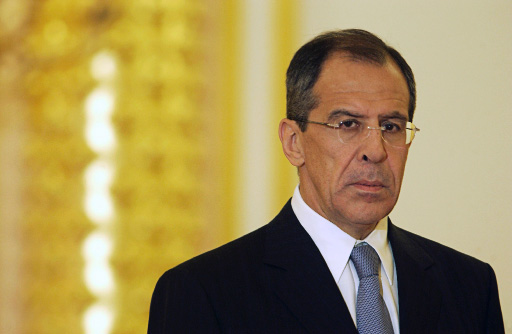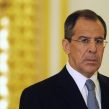
Moscow Meeting Fails to Re-Launch 5+2 Negotiations On Transnistria Conflict
Publication: Eurasia Daily Monitor Volume: 8 Issue: 120
By:

Efforts to re-launch negotiations on Transnistria conflict-settlement, after a five-year breakdown, in the 5+2 format (Russia, Ukraine, OSCE, the United States, European Union, Chisinau, Tiraspol) collapsed on June 21 in Moscow. The meeting’s failure was almost preordained (see EDM, June 21).
Russia and the OSCE (within the 5+2 format), and Germany (from outside the format, and without EU clearance) had proposed preliminary terms that emboldened Tiraspol to hold out for maximum gains at Chisinau’s expense. By the same token, the Russo-German convergence during the preliminaries undercut the EU-US position jointly prepared for this meeting. All this made it easier for Russia to excuse Tiraspol for torpedoing the 5+2 effort.
Opening the meeting, Russian Foreign Minister Sergei Lavrov cited a 2009 joint statement by President Dmitry Medvedev, Moldova’s communist then-president Vladimir Voronin, and Tiraspol leader Igor Smirnov, outlining a basis for negotiations in that tripartite format, on Russian-defined terms. Lavrov’s opening continues the attempts to circumvent the 5+2 format, even as Moscow claims to support its resumption. By the same token Moscow seeks to smuggle documents from other formats into the 5+2 format.
The Moscow meeting ran overtime and the participants stopped the clock to prolong it, unavailingly. Tiraspol demanded that the Russian draft be accepted as the basis for the meeting’s concluding document, with some Tiraspol amendments. Such a document would have announced the resumption of official negotiations toward conflict-resolution, along with broad guidelines for a subsequent negotiating process.
The Russian draft (like that from the OSCE) misconstrued the 5+2 format as merely continuing an earlier, Russia-dominated 3+2 format, and inheriting its Russian-defined guidelines, in which the US and EU had had no role. Further to minimize Western inputs into the 5+2 process, the Russian draft claimed, “Responsibility for seeking solutions on Transnistria settlement rests with Chisinau and Tiraspol.” This would obscure Russia’s ultimate responsibility for the deadlock. It would perpetuate Tiraspol’s blocking power in Moscow’s interest, given their joint resistance to change, as opposed to Chisinau’s interest in changing the situation. And it would reduce the significance of the 5+2 format to a nearly-symbolic one by creating parallel formats, Chisinau-Tiraspol and Chisinau-Tiraspol-Moscow (1+1, 2+1). Moscow has repeatedly encouraged such multilayered negotiations to dilute the 5+2 format and Western inputs there.
Moscow’s draft referred to Russia and Ukraine as the “guarantors” of an eventual settlement of the conflict. Russia had awarded this role to itself and to Ukraine during the 1990’s. No other country or organization has recognized this claim. At the Moscow meeting, only the Russian and Tiraspol sides referred to it. Even the Ukrainian draft document omitted it.
The Russian draft paid traditional lip service to Moldova’s sovereignty and territorial integrity (omitting this time, however, a mention of Moldova’s borders); called for a special status of Transnistria (omitting, however, “within Moldova”); and postulated equality of Chisinau and Tiraspol in the negotiating process (thus implicitly nullifying the provisos on Moldova’s sovereignty and territorial integrity, already violated by Russia’s troops in Transnistria). While Moscow felt that it had to pay at least some lip service, the OSCE’s draft failed altogether to mention Moldova’s sovereignty, territorial integrity and borders.
Apparently, the Russian side decided to allow Tiraspol to stonewall this meeting, so as to raise the price of Moscow’s and Tiraspol’s cooperation down the road. The meeting broke down without a joint statement or any clear decisions. Another meeting is supposed to convene in Moscow at an unspecified time to attempt re-launching official 5+2 negotiations, which have not been held since 2006 (Interfax, Moldpres, Olvia Press [Tiraspol], June 22).
Lavrov had prefaced the 5+2 meeting with a media interview describing Chisinau’s and Tiraspol’s positions as equally “extreme.” Lavrov urged Tiraspol to renounce the idea of “independence” from Moldova and past referenda on this issue. At the same time he urged Chisinau to renounce the concept of a unitary state and its 2005 law on conflict-resolution principles (Ekho Moskvy, June 20; Interfax, June 21).
Undoubtedly, the Russian side expressed that position in the aborted meeting. The first part of Lavrov’s construction is an old one. Russia has never supported Transnistria’s full or irreversible separation from Moldova. On the contrary, Russia seeks a formula for “federating” Transnistria with Moldova on Russian-defined terms, as opposed to European terms, and through Transnistria to dominate a “federalized” dysfunctional Moldova. The second part of Lavrov’s construction, however, is a recent one and reflects the Russo-German convergence. Moscow and Berlin are urging Chisinau to abandon a “unitary state” (i.e., rewrite Moldova’s Constitution) and the 2005 organic law (see EDM, June 6, 8).
Another meeting will convene at an unspecified time. The only clear decision is to hold that meeting in Moscow again. This reflects a risky tendency to acknowledge a paramount role for Moscow in these negotiations. The EU and the US are disadvantaged by their official status as observers in the 5+2 negotiations.
The only silver lining on this meeting is Ukraine’s position, largely due to its senior negotiator Ihor Kharchenko. In tune with the EU-US joint draft, the Ukrainian draft called for negotiations without preconditions; supported explicitly Moldova’s independence, sovereignty, territorial integrity within its internationally recognized borders; and specified that Transnistria’s status should be as a part of Moldova. The Ukrainian document even omitted any mention of Russia and Ukraine as Moldova’s “guarantors,” thus undermining Russia’s own claim, and consigning Yevgeny Primakov’s invention of Russo-Ukrainian “guarantees” to the archives.




